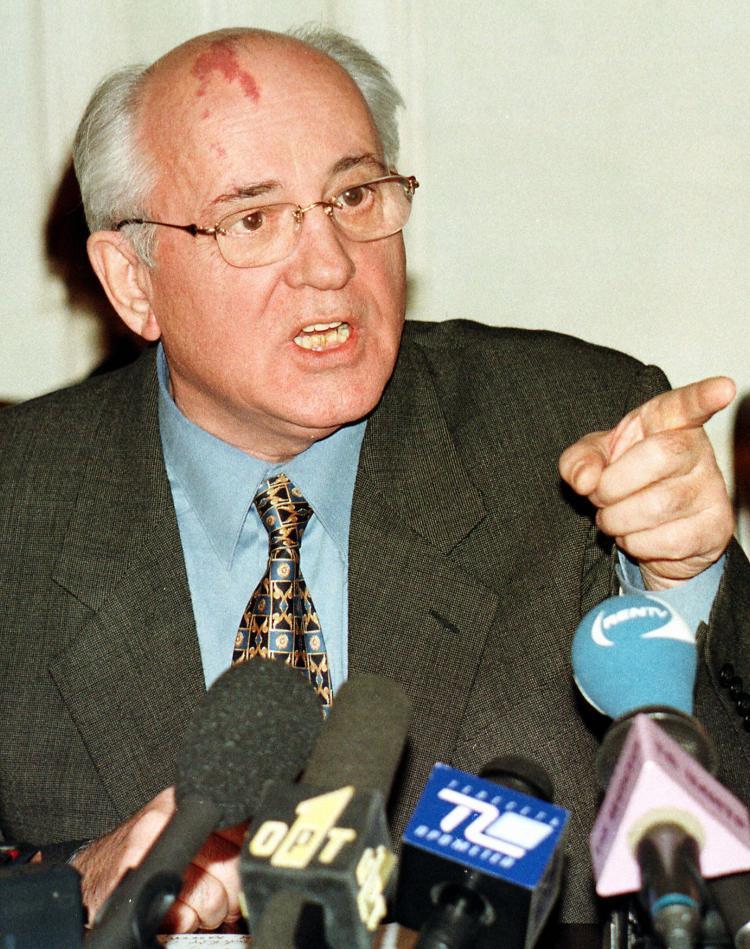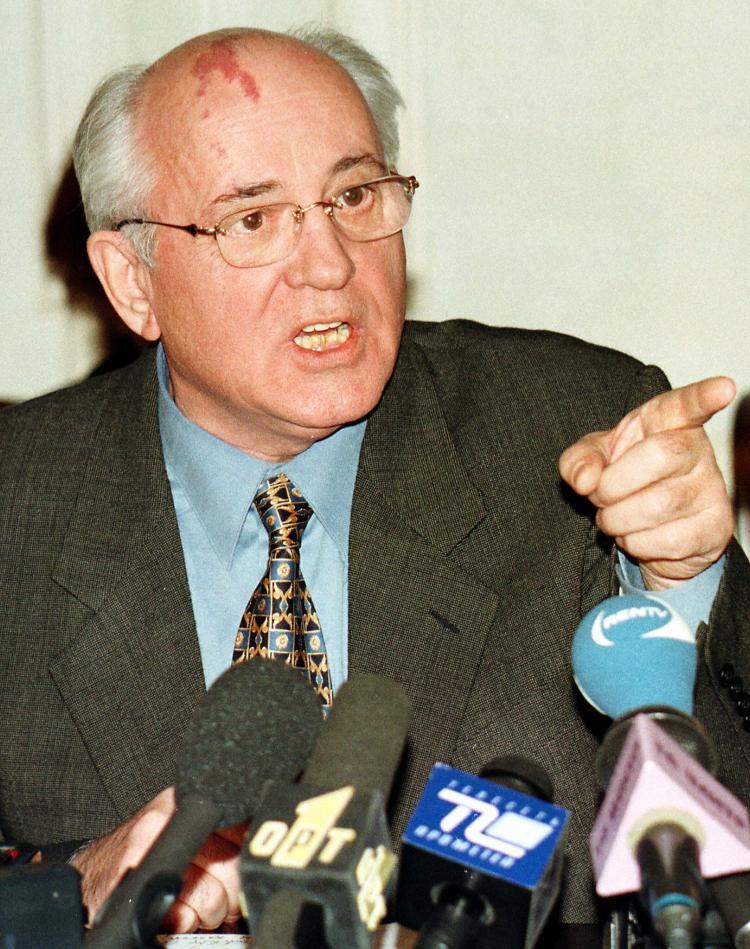Berlin Wall Memories: A Professor and the Collapse of the Soviet Union
A Russian Professor discusses the fall of the Soviet Union.

Photo taken on Feb. 3, 1990 of Former Soviet Leader Mikhail Gorbachev. Though Gorbachev wanted reforms he didn't expect the Berlin wall, the symbol of the Iron curtain to fall so rapidly. Alexander Memenov/AFP/Getty Images
|Updated:





